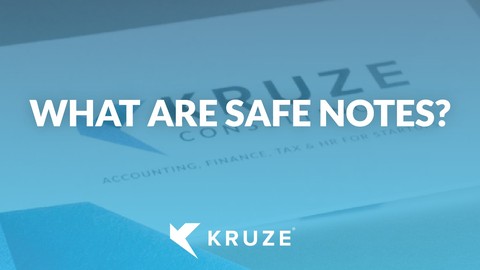
“How should I get in touch with angel or seed funds”? This is a question we get from startup founders all the time, and, you know, it’s for a reason. There are so many entrepreneurs out there who have a great idea, who want to build the future, build for their passion, and really all they need is capital, and so really the angels and seed funds are the gateway to getting into the business. They give you the money to get into the business, so it’s natural to want to talk to them. So first, it’s helpful to just think this thorough. Most angels are high net worth individuals. They have made money somewhere and have had some success, and that is why they are investing in startups. Seed funds are typically actual institutional venture capital funds, professional money managers, who look at startups all day long.
Here are a few ways a startup founder can get in touch with angel or seed funds:
Networking - the best way to reach angel investors
Now, the cool thing is at this stage, the early stage, angels and seed funds have a lot in common, so we can lump them in together here. So, of course, the obvious way to get in touch with them is through networking, through your relationships, or just knowing them directly. So a lot of times the first angel investors in the company are someone you have worked with within the past. You may have worked at Google or Facebook, or Amazon, and you reported to someone or, they were a senior person in your group. Sometimes, you are an alumnus of the same college or school. There are just some personal relationships there or maybe you have friends in common.
So it is always best to go through those channels if you can, and really when you are looking to get in touch with angels and seed funds, getting introductions is helpful. It cuts through the red tape. With the mental overhead of whether the investor wants to meet with you or not. It is easier for them to decide. So, if possible, I would go with intros and through people you know. Now, there are a lot of people, especially outside the Bay Area and New York and maybe Santa Monica, who are creating cool startups these days, but don’t have that direct connection to the sexy angel investors or the seed funds. This is where networking or cold emailing can help you out.
Cold Emails - a decent, but low-yield, contact method
Sometimes, angel investors joke that they don’t answer cold emails, but they do. There’s a lot of investors who will answer cold emails, so if you cannot get that intro, don’t give up. We know of many companies that got in touch with their angel investors through cold emails. It can happen!
So what should your cold email say? First of all, it has to be upbeat and tight. You don’t want to send them “War and Peace,” or a whole volume of text. You want to keep it short and to the point. The first couple of sentences really should be a short explanation of what the company is doing and why it is important and the potential. So maybe three sentences, and I’m not joking here about keeping it short. Investors tend to have a short attention span. You are a guest in their email box. You want to keep it short and powerful.
The next thing you want to do is express the traction and progress you’ve made.
This could be building a product and getting it into the app store, getting it on the web, or getting people to use it. Maybe it is revenue traction. Maybe you are Ramen profitable, and you are breaking even already … but some type of signal that people like what you are doing and that you have some traction.
Another thing I like to include is some type of link, a presentation, or a one-pager attached to the email. That way, when they want to learn more, they can click that and quickly skim through it. Investors look at tons of presentations and one-pagers. They are very, very good at doing that efficiently, so absolutely include that. Another thing you want to include is just the dollar ask and the dollar size of the round, “Very simple, we’re raising $2,000,000, and I’d love it if you’d be interested in putting in $100,000, or I’d love it if you’d be interested in leading the round”.
Some type of signal, so they know how much you are looking for. Maybe you can also include how much is already committed so they are just feeling like you are raising 2,000,000, but 1.5’s already committed. You are hoping they can fill in the rest of that round.
So those are the important things. You also want to personalize it for them in some way, whether it’s a distant connection, you saw them write a great article, or you just know they ran a business that was the first generation of what you are building … some personalization and saying why it is important for you to get them to invest.
Advisors like Lawyers or Kruze
Lawyers and accountants like Kruze can be an excellent conduit to angels and seed funds. We work with ‘em all day long, we know who the good ones are. These types of providers know who might be interested in your market or what you are building, and so also look to your lawyer and accountant for intros. They are not going to get your company funded for you, but they can make a few intros to help you out.
What to do after you’ve raised angel funding?
Congrats! You’ve gotten in touch with angel investors, and have secured funding to get your startup going! So what are the first things you need to do after you’ve raised angel funding?
- Get stand alone corporate bank account - choose a bank that knows startups; they can help you manage your cash and meet Series A investors
- Establish a company Credit Card - no personal cards.
- Setup Payroll
- Accounting
- Get an Accountant
- Get Quickbooks - this is the best accounting software for funded companies in the USA
- Tune up your Financial Model and get ready to do regular comparisons of your actual results to your projections / projected cash position
- Immediately begin writing investor updates every month
Hire or Contract with a Recruiter - you will need people!









